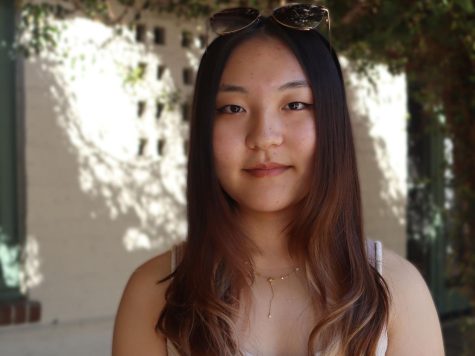Plastic is everywhere. It is impossible to escape. From the bucket of dining hall plastic utensils to the coffee cups littering the tables, plastic can be found everywhere in our daily lives.
After all, plastic is convenient. It has all the properties of a great container; transparent, flexible, durable, and easy to carry. However, the downside is that it is difficult to dispose of them safely.
Substanstial amount of plastic ends up in the ocean due to things like litter, microplastics from other water sources, or poor waste management. Because plastic does not decompose fully, it can only break down into smaller and smaller particles until you cannot separate them from the water. As a result, predicament means that the plastic that ends up in our oceans will harm marine life and the ecosystems around them.
Already, we can see the effects of our neglect affecting the oceans. The Great Pacific Garbage Patch is a vortex of trash swirling around between the West Coast of America to Japan. Satellite images might not capture the mound of trash, but instead a cloudy patch of water. This cloudiness occurs because plastics and trash have been broken down into smaller particles, floating around in the water and some bigger debris even sinking down to the seafloor.
Marine life is affected in all sorts of ways. Turtles mistakenly eat plastic bags, albatrosses will feed their young resin pellets, and seals drown in discarded fishing nets, but we are not going to stop using it anytime soon.
After all, plastic is cheap to make, and because it is a byproduct of gas and oil, there is seemingly a never-ending production of it. Even more shockingly, oil companies have actually promoted recycling in order to promote the use of plastics, creating a false sense of lessened guilt because now, the plastics will not be just thrown away.
It is also cheaper to make new plastic than to pick it out and recycle it, and recycling is not as effective as we are told it to be. In fact, in 2018, less than 10% of plastics were recycled. As of now, recycling plastic is not feasible enough for a wide scale operation. To the oil industry, the marginal costs of ensuring plastic is recycled are too much. In short, there is little recycling can actually do to combat the growing pollutant’s presence in our world.
With all this waste and plastic pollution, it seems impossible to combat it. Our efforts seem like throwing a spoon of water at a raging fire, hoping it will do something. After all, the rise of COVID-19 came with an increased use of single-use plastics. Restaurants must package food for to-go, gloves and masks are being used daily, and even here at Webb, our use of plastics is significant.
There is no perfect solution to combat the increasing use of plastic now, but it should be a priority to consider reusing the same cup throughout the day and maybe even bringing reusable metal cups for coffee and such.
“Right now, we are using about 6,000 forks, 2,000 cups, and a couple of hundreds of spoons and knives each week,” said Armando Amezcua, Director of Food Services.
These numbers are not insignificant. A month could mean over 30,000 plastic products used, and that does not even account for the other plastic products such as the at bagel bar, chip packages, yogurt cups, cereal boxes, and more.
In order to change, we have to be mindful of our individual practices, and part of that has to do with our consumption as members of the community.
“Reducing our consumption is better than reusing or recycling,” said Shuci Zhang (‘23), co-president of the Environmental Club.
With the growing issue of climate change, pollution, and world deterioration, the Webb community must work to solve those issues, no matter how small our contributions may be. That is what sustainability is about.
In fact, sustainability has a key word in its name: sustainable. Your practices need to be sustainable, and that means you do not need to be perfect all the time. The practices you choose must be consistent above everything else, and that is the only way things we can reduce consumption in the long run.
It is hard to ask the community to bring their own utensils or use the same pair of utensils daily, but there are always alternatives.
For example, students should have noticed the white forks in green packaging are labeled as compostable, which means they go into the green bin labeled with compost.
“We prefer to use compostable plates and utensils, but it is up to the students to put them in the compost containers,” said Mr. Amezcua.
The best idea is to buy a set of metal utensils and keep them with you or at your dorm. More geared towards boarders, this practice could help when coming down to the dining hall or taking food to your room.
Some teachers and students have already made steps to implement this practice.
“I carry around my own set of utensils,” Howie Kalter, mathematics department faculty, said.“Sometimes the hardest part is remembering to bring it but doing so saves a lot of plastic forks.”
However, the return of glass cups and utensils is expected to come with the return of indoor dining, so it is up to us to continue to follow health protocols, get tested, and mask up indoors in order to steer ourselves onto that path.
“There is a ripple effect to our actions,” said Ken Rosenfeld, Dean of Campus Life. “It is difficult to always be mindful of the impact of our actions in the moment, but we have to keep in mind the effect they have later on.”
As the Webb community, our influences matter, and the small things we implement into our daily lives will lead to meaningful changes that can change the world, one less plastic fork at a time.


![Webbies grab a quick breakfast at the dining hall, choosing between a multitude of packaged cereal options and bottled juices. There is a lot of plastic consumption at the dining hall, and it has been exacerbated by health protocols which cannot be changed as right now. "I really want students to keep in mind [about their consumption], especially with the paper cups,” Mr. Amezcua said. “I want them to bring their own water bottles and cups when they can.”](https://webbcanyonchronicle.com/wp-content/uploads/2021/11/Chang-Plastic-900x506.jpeg)












